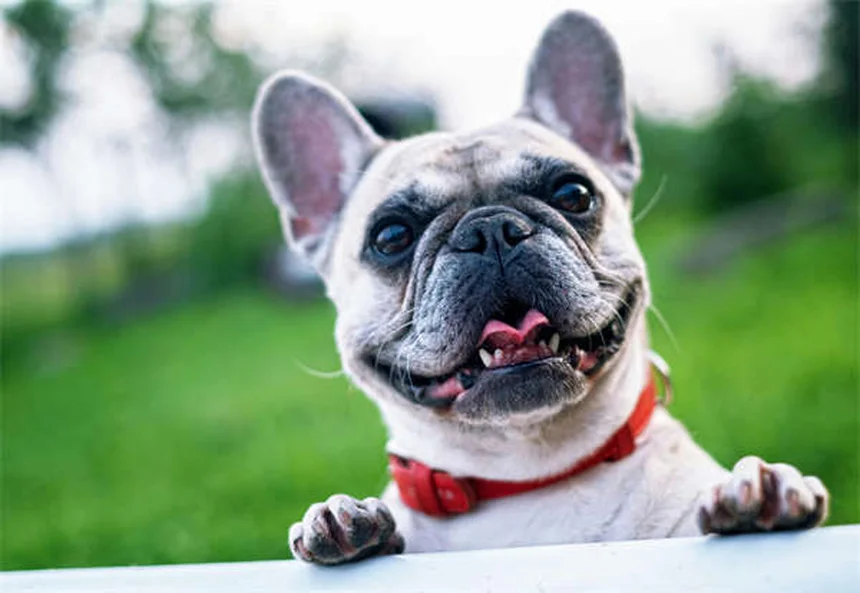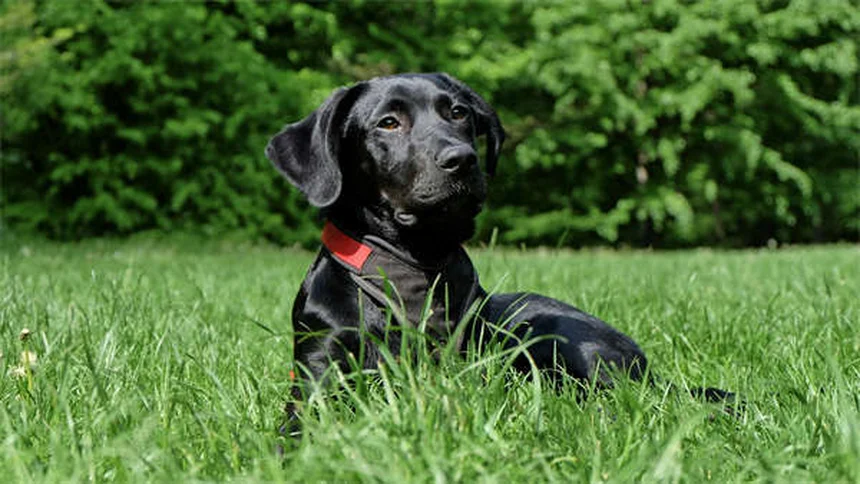When does a pet become a senior? The answer might surprise you - most dogs and cats hit their golden years between 5-10 years old, depending on their breed and size. I've seen too many people overlook these amazing senior pets at shelters, not realizing what incredible companions they can be. Senior pets come with perks like being already trained, calmer temperaments, and knowing exactly who they are - no puppy surprises!As someone who's adopted several senior pets myself, I can tell you they bring a special kind of joy. Sure, they might need some extra care, but isn't that true for all of us as we age? The key is understanding what changes to expect and how to make their golden years comfortable. In this guide, I'll walk you through everything from senior-proofing your home to choosing the right senior diet - because these wise old souls deserve the best!
E.g. :Best Flea and Tick Prevention for Dogs: Keep Your Pup Safe Year-Round
- 1、When Does a Pet Become a Senior?
- 2、Getting Your Home Senior-Pet Ready
- 3、Nutrition Needs for Golden Oldies
- 4、The Reality of Senior Pet Health
- 5、Creating the Perfect Senior Lifestyle
- 6、Financial Planning for Senior Care
- 7、The Emotional Rewards of Senior Adoption
- 8、Understanding Your Senior Pet's Changing Needs
- 9、The Emotional Side of Senior Pet Care
- 10、Tech Gadgets That Help Senior Pets
- 11、Special Considerations for Multi-Pet Homes
- 12、Celebrating the Senior Pet Journey
- 13、FAQs
When Does a Pet Become a Senior?
The Surprising Truth About Pet Aging
You might be shocked to learn that Fluffy reaches senior status way earlier than you'd think. While we humans don't hit senior discounts until our 60s, our four-legged friends age much faster. For dogs, it typically starts between 5-7 years depending on breed - that's middle school age in human years! Cats hit their golden years around 7-10 years old.
Here's a fun fact that'll make you look at pet ages differently: A 7-year-old Great Dane is like a 70-year-old human, while a 7-year-old Chihuahua is more like a 45-year-old. That's why size matters when we talk about senior pets. The table below shows how different breeds age:
| Breed Size | Senior Age | Human Equivalent |
|---|---|---|
| Small (under 20 lbs) | 7-10 years | Mid-40s to 50s |
| Medium (21-50 lbs) | 6-8 years | Late 40s to 50s |
| Large (51-90 lbs) | 5-7 years | Mid-50s to 60s |
| Giant (over 90 lbs) | 4-6 years | 60+ |
Why Senior Pets Rock (Despite the Gray Hairs)
Let me tell you why adopting a senior pet might be the best decision you'll ever make. These wise old souls come pre-loaded with personality - no guessing games about temperament! They're typically house-trained, past the chewing phase, and often know basic commands. It's like getting a pet with all the software updates already installed.
But here's the million-dollar question: Why do so many people overlook these amazing companions? The answer breaks my heart - it's the silly assumption that older pets come with more problems. Sure, they might need a little extra care, but don't we all as we age? The truth is, senior pets have so much love to give and often show deeper gratitude for their second chance at life.
Getting Your Home Senior-Pet Ready
 Photos provided by pixabay
Photos provided by pixabay
Must-Have Items for Your Silver Snoot
Before bringing home your distinguished gentleman or lady, let's talk home modifications. Think of it as puppy-proofing for seniors! Orthopedic beds are non-negotiable - they're like memory foam mattresses for pets with arthritis. Place them in multiple rooms so your new buddy always has a comfy spot nearby.
Here's my pro tip: Add non-slip rugs on hardwood floors and pet stairs near furniture. These simple changes can prevent painful slips and falls. For cats, consider a low-entry litter box - imagine trying to climb into a tall box with creaky knees!
The Senior Pet Shopping List
Let me walk you through the essentials you'll need:
- Raised food/water bowls (saves those achy necks)
- Night lights (for those dimming eyes)
- Harness instead of collar (gentler on arthritic necks)
- Interactive toys (mental stimulation is crucial)
- Supplements (we'll talk specifics later)
And here's something most people forget: Create a "senior first aid kit" with vet-approved pain relievers, paw balm, and any prescribed medications. Trust me, you'll thank me at 2 AM when Fluffy needs relief and the vet's closed.
Nutrition Needs for Golden Oldies
Decoding Senior Pet Food Labels
Feeding senior pets isn't just about grabbing any "mature" labeled bag. Their changing bodies need specific nutrients. High-quality protein becomes even more important to maintain muscle mass, while joint-supporting ingredients like glucosamine can make a world of difference.
Did you know warming food can make it more appealing? As taste buds fade, adding warm water or low-sodium broth can turn a ho-hum meal into a gourmet experience. Just like grandma's chicken soup when you had a cold!
 Photos provided by pixabay
Photos provided by pixabay
Must-Have Items for Your Silver Snoot
Here's where many pet parents get overwhelmed. Let me simplify it:
- Dasuquin for joints (like yoga for their bones)
- Denamarin for liver health (their internal detox system)
- Omega-3s for skin and brain (nature's moisturizer)
But wait - here's another important question: How do you know which supplements your pet actually needs? The answer is simple - ask your vet! They can recommend blood tests to pinpoint exactly what your senior needs, avoiding unnecessary supplements.
The Reality of Senior Pet Health
Common Conditions and How to Spot Them
Let's be real - aging brings changes. Arthritis might mean slower walks, dental issues could mean stinky breath (more than usual!), and cognitive decline might lead to confusion. But here's the good news: early detection makes all the difference.
Watch for these subtle signs:
- Taking longer to settle down
- Less interest in play
- Changes in sleep patterns
- Accidents in the house
Making Vet Visits Less Stressful
Regular check-ups become crucial - think of them as your pet's annual physical. But let's face it, most pets hate the vet. Here's my secret: Bring their favorite blanket, schedule early appointments to avoid crowded waiting rooms, and always follow up with extra cuddles (and maybe a special treat).
Pro tip: Ask your vet about mobile vet services or fear-free certified clinics. These options can make healthcare much less stressful for your senior sweetheart.
Creating the Perfect Senior Lifestyle
 Photos provided by pixabay
Photos provided by pixabay
Must-Have Items for Your Silver Snoot
Gone are the days of marathon fetch sessions. Now it's about quality over quantity. Short, frequent walks work better than long treks. Try sniff walks - let them stop and smell every fire hydrant! Mental stimulation through nose work or puzzle toys can tire them out without overtaxing their bodies.
For cats, keep play sessions short but engaging. A feather wand waved slowly can provide exercise without exhausting them. Remember, we're going for gentle movement, not kitten crazies!
The Comfort Factor
Temperature regulation becomes trickier for seniors. Provide warm spots (heated beds in winter) and cool areas (tile floors in summer). Keep everything easily accessible - if they can't climb stairs anymore, move their essentials to the main floor.
And here's a heartwarming truth: Senior pets often become more affectionate as they age. That constant shadow following you? That's their way of saying "Thanks for loving me in my golden years."
Financial Planning for Senior Care
Budgeting for the Golden Years
Let's talk dollars and sense. Senior pets might need more vet visits, but they often cost less in other areas (no puppy destruction repairs!). Consider pet insurance (yes, even for seniors!) or start a dedicated savings account. Even setting aside $50/month can cover routine senior bloodwork.
Here's a money-saving tip: Many shelters offer discounted wellness plans for adopted seniors. Always ask - you might get free checkups or discounted medications!
When to Consider Specialists
Sometimes your regular vet might recommend seeing a:
- Veterinary cardiologist (heart health)
- Canine rehabilitation therapist (for mobility)
- Veterinary behaviorist (for cognitive issues)
While specialists cost more, they can dramatically improve quality of life. Think of it like hiring a personal trainer for your pet's specific needs!
The Emotional Rewards of Senior Adoption
Why It's Worth Every Moment
Adopting a senior pet isn't just about giving them a home - it's about receiving unconditional love from an animal who truly understands second chances. Their gratitude shines through in every gentle head nudge and contented sigh.
Yes, your time together might be shorter. But here's what I've learned: Love isn't measured in years, but in moments. Those slow evening walks, the way they light up when you come home, the peaceful companionship - these become priceless memories.
Building Your Support System
Don't go it alone! Connect with other senior pet parents online or through local meetups. Swap tips, share concerns, and celebrate the small victories together. Remember, we're all just trying to give our old friends the golden years they deserve.
And when the tough days come (because they will), lean on this community. They'll remind you that every extra day of love you give is a gift - both for your pet and for you.
Understanding Your Senior Pet's Changing Needs
The Hidden Signs of Aging You Might Miss
You know how your grandpa started watching the Weather Channel all day? Pets show similar subtle changes. That dog who used to greet you at the door might now wait on the couch - not because they love you less, but because those joints ache after napping. Cats might stop jumping on counters, not from good behavior, but because their depth perception isn't what it used to be.
Here's something most owners overlook: Changes in vocalization. Your quiet cat might start meowing more, or your barky dog might get unusually quiet. It's not just moodiness - they might be experiencing hearing loss or cognitive changes. Think of it like when your uncle starts talking too loud at family dinners without realizing it!
Creating a Senior-Friendly Daily Routine
Consistency becomes more important than ever for aging pets. Feed them at the same times, take walks on schedule, and keep their bed in the same spot. Why? Because just like us, seniors thrive on routine. It reduces anxiety and helps them navigate their world as senses dull.
Try this simple trick: Use nightlights in hallways. Older pets often develop vision issues, and a softly lit path to their water bowl can prevent midnight confusion. I've seen 14-year-old dogs start pacing at night, then completely stop after adding $5 plug-in lights along their usual routes!
The Emotional Side of Senior Pet Care
How Your Pet's Personality Might Shift
Ever noticed how some people get sweeter with age while others get grumpier? Pets do the same! That independent cat might suddenly become a lap cat, while your social butterfly dog might prefer quiet time. The key is respecting these changes without taking them personally.
Here's a heartwarming example: My neighbor's 15-year-old lab mix started "talking" - making these adorable grumbly noises when happy. The vet said it's common for seniors to develop new ways of communicating as their needs change. Now their whole family has "conversations" with him!
Preparing Your Heart Alongside Your Home
Let's address the elephant in the room: Senior pets have shorter futures. But here's what I've learned from fostering dozens of golden oldies - that awareness makes the time sweeter. You notice each purr, appreciate every slow-motion tail wag, and become present in ways you never were with younger pets.
Create memory-making traditions now. Weekly photo shoots. Special "old dog" outings (ice cream shops often give free pup cups!). Pawprint keepsakes. These aren't morbid - they're celebrations of the love you're sharing today.
Tech Gadgets That Help Senior Pets
Modern Solutions for Age-Old Problems
You'd be amazed what pet tech exists now! From smart feeders with portion control for pets on special diets to GPS trackers for seniors who wander, there's help for nearly every aging challenge. My current favorite? The pet camera that dispenses treats remotely - perfect for checking on your napper without disturbing them.
Water fountains with filters are game-changers for kidney health. The running water encourages drinking while filtering out impurities. One client's cat went from barely drinking to loving her "personal waterfall" - and her kidney values improved!
When Low-Tech Solutions Work Best
But sometimes, the simplest solutions win. A heated rice sock (wrapped in a towel) makes a cheap, effective heating pad for achy joints. Baby gates can create safe zones without expensive home modifications. And that old yoga mat you never use? Perfect for creating non-slip pathways!
Here's my favorite hack: Use a muffin tin for medication organization. Each cup holds a day's pills, and you can label them with dry-erase markers. No more "Did I give the morning pill?" panic!
Special Considerations for Multi-Pet Homes
Helping Younger Pets Adjust
Got a puppy who doesn't understand why their playmate slowed down? Create separate play sessions with appropriate energy levels. The young one gets rambunctious fetch, while the senior gets gentle grooming or puzzle toys. This prevents frustration on both sides.
Watch meal times closely. Older pets often eat slower, and food-stealing can become an issue. I recommend feeding seniors in a separate room or using microchip-activated feeders that only open for the right pet!
When to Consider Temporary Separation
Sometimes, the kindest solution is giving your senior their own space. A quiet bedroom with all their essentials can be a sanctuary when the household gets too chaotic. Think of it like giving grandpa the good recliner away from the kids' noise!
Signs it's time for separate spaces include: your senior hiding more, showing stress behaviors like excessive licking, or getting startled easily. A cozy retreat can work wonders for their peace of mind.
Celebrating the Senior Pet Journey
Honoring Each Life Stage
We throw birthday parties for puppies - why not for seniors? Make their golden years festive with "Gotcha Day" celebrations, "Half-Birthday" treats, or monthly "You're Awesome" days. One client throws her 16-year-old dog a "Sweet Sixteen" party every year with dog-friendly cake and presents!
Create an "I Love You Because..." board where family members can leave daily notes about what they appreciate about your senior. It sounds silly, but this practice helps everyone focus on the positives during challenging times.
The Unexpected Gifts of Senior Companionship
Here's the beautiful truth no one tells you: Senior pets teach us how to age gracefully. Their ability to find joy in simple things - a sunbeam, a gentle ear rub - reminds us what really matters. That 13-year-old dog who still wags his tail for breakfast? That's living in the moment at its finest.
And when the time comes to say goodbye? You'll know you gave them the best possible golden years - full of love, comfort, and dignity. That knowledge brings a special kind of peace that makes every extra day worth it.
E.g. :Any advice on adopting older dogs? : r/rescuedogs
FAQs
Q: What age is considered senior for dogs?
A: The age when dogs become seniors varies by size - and this is something many pet parents don't realize! Small breed dogs (under 20 lbs) typically become seniors around 7-10 years, while medium breeds (21-50 lbs) hit senior status at 6-8 years. Large breeds (51-90 lbs) are considered seniors at 5-7 years, and giant breeds (over 90 lbs) as early as 4-6 years. I always tell my friends with big dogs to start senior care earlier - it's like how a 6-year-old Great Dane is similar to a 70-year-old human!
Q: How can I make my home safer for a senior pet?
A: Senior-proofing your home is easier than you think! Start with orthopedic beds in multiple rooms - these are game-changers for pets with arthritis. Add non-slip rugs on hardwood floors and consider pet stairs for furniture access. For cats, get a low-entry litter box. One of my best tips? Install night lights to help pets with fading vision navigate safely after dark. These simple changes can dramatically improve your senior pet's quality of life.
Q: What's the best food for senior pets?
A: Senior pets need specialized nutrition to maintain muscle mass and joint health. Look for foods with high-quality protein and added glucosamine/chondroitin. Many brands like Royal Canin offer mobility support formulas specifically for older pets. Here's a trick I've learned: warming the food or adding low-sodium broth can make meals more appealing as their taste buds fade. Always consult your vet about your pet's specific dietary needs - what works for one senior might not work for another.
Q: How often should I take my senior pet to the vet?
A: Most vets recommend bi-annual check-ups for senior pets (every 6 months) instead of the usual annual visits. This allows for early detection of age-related conditions. Between visits, keep an eye out for subtle changes - less interest in play, difficulty getting up, or changes in bathroom habits. I schedule my senior dog's check-ups around his birthday and half-birthday - it's an easy way to remember!
Q: Are senior pets more expensive to care for?
A: While senior pets may need more veterinary care, they often cost less in other areas (no puppy destruction repairs!). Budget for regular check-ups and consider pet insurance or a dedicated savings account. Many shelters offer discounted wellness plans for adopted seniors - always ask! In my experience, the unconditional love and gratitude from a senior pet makes every penny worth it. Their golden years can be some of the most rewarding times in your life together.







